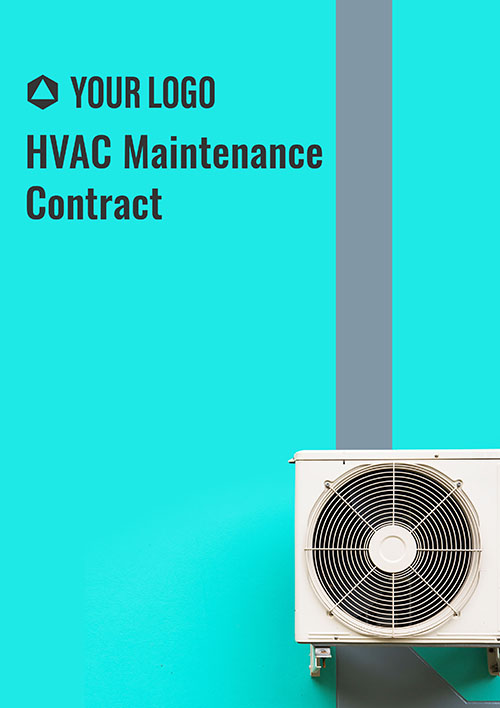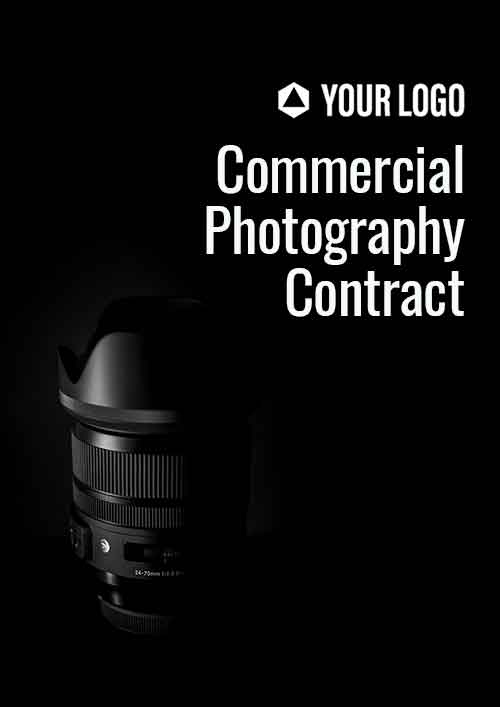Empty space
1x
2x
3x

Commercial
Photography
Contract
Empty space
1x
2x
3x
Empty space
1x
2x
3x
Prepared for:
[Client Name]
]
Prepared by:
[Photographer Name]
Commercial Photography Contract
Commercial Photography Contract
This 'Commercial Photography Contract' (hereinafter referred to as the "Contract") is entered on [Date] (hereinafter referred to as the "Effective Date"),
By and Between,
[Client Name] (hereinafter referred to as the "Client"), residing at [Address], and;
[Photographer Name] (hereinafter referred to as the "Photographer") with its place of business at [Address].
The Client and the Photographer are collectively referred to as the "Parties" and individually as "Party".
WHEREAS the Client seeks to hire the Photographer as an independent contractor for its professional photography services;
AND WHEREAS the Photographer agrees to provide the aforementioned services to promote the Client's [products/services] and business for the photography session (hereinafter referred to as the "Session") set forth in the Contract.
NOW, THEREFORE, in consideration of the terms and conditions set forth below and other good and valuable consideration, the receipt and sufficiency of which is hereby acknowledged, the parties agree as follows:
Empty space
1x
2x
3x
Terms & Conditions
Terms & Conditions
1. Photography Session Details
1. Photography Session Details
- All the information related to the Photography Shoot is as follows:
- Session Venue: [Address]
- Session Date: [Date]
- Estimated Start Time: [Time]
- Estimated End Time: [Time]
- Minimum Photos Taken: [Number]
- Maximum Photos Taken: [Number]
- The Client agrees to confirm the scheduled time prior to the session.
- Notification of any changes in schedule or location shall be made in a timely manner and confirmation of receipt must be obtained from the Photographer by the Client.
2. Payment
2. Payment
As full compensation for the Services, the Client shall pay the Photographer an amount of $[0.00] (hereinafter referred to as the "Total Fee").
Upon the signing of this Contract, a non-refundable deposit of $[0.00] shall be paid by the Client to the Photographer (hereinafter referred to as the "Retainer Fee") and the remaining balance is due [Number of Days] days before the session.
The mode of payment shall be [cash/cheque/card].
In case that the payment is not made in full by the aforementioned deadline, the Photographer reserves the right to terminate this contract, retain the retainer fee, and no longer be held liable for rendering further services to the Client.
3. Additional Expenses
3. Additional Expenses
The Client shall fully reimburse the Photographer for any additional costs associated with this Contract, including (but not limited to) travel, lodging, meals, and parking fees.
If additional hours are required that are beyond the agreed-upon time in this Contract, the Photographer shall charge an amount of $[0.00] per hour to the Client.
4. Term
4. Term
This Contract shall commence as of the Effective Date and shall remain effective until the completion of services mentioned herein.
5. Deliverables
5. Deliverables
The Photographer shall deliver the agreed-upon number of digital files of the photographs to the Client within [number of days] days of the photography shoot. The Client then shall have [number of days] days to give a written list of the photographs required for final production and delivery, including format.
6. Warranties
6. Warranties
- The Client acknowledges that the Photographer cannot warrant certain poses or coverage quality.
- The Client further acknowledges that the Photographer shall not be held responsible for compromised coverage due to interference from the guests or due to environmental issues, such as poor lighting, space, or backdrops.
- The Photographer warrants that the photos shall not infringe upon any third party’s patents, trademarks, trade secrets, copyrights, or other proprietary rights.
- The Photographer agrees to make every effort to provide satisfactory coverage, but cannot make any promises as to specific poses or coverage during the Session.
- The Photographer warrants that it shall provide services and meet its obligations under this Contract in a timely and efficient manner.
7. Post Production and Editing
7. Post Production and Editing
The final post-production and editing styles, effects, and overall look of the photos are left to the discretion of the Photographer.
8. Archive and Storage
8. Archive and Storage
The Photographer archives all photographs produced as a result of the Session for a period of [number of days/weeks/months] from the date of the Session. After that time, the Photographer deletes all photographs from its storage. The Photographer is not responsible for the photographs once they are delivered to the Client. The Client is solely responsible for keeping the photographs in a safe place and for making back-up copies of any photographs that are delivered to the Client.
9. Model Release
9. Model Release
The [Client/Photogrpaher] is responsible for acquiring the necessary model releases for the models participating in the Session.
10. Copyrights
10. Copyrights
The Photographer reserves the full copyright to all the photos taken during the photography shoot. However, the Photographer grants the Client a non-exclusive, non-transferable license to use the photos for unlimited personal use only. Sale, publication, or any other commercial use of the photo by the Client is specifically prohibited without the prior written consent of the Photographer.
11. Relationship of Parties
11. Relationship of Parties
The Client is hiring the Photographer as an Independent Contractor under the scope of this Contract. The Client and the Photographer shall not establish any partnership or employer-employee relationship.
12. Postponement and Rescheduling
12. Postponement and Rescheduling
The Client acknowledges that in case there is a Postponement of the Session, the Photographer will incur expenses and financial loss. Therefore, the Client shall inform the Photographer in writing about the rescheduling of the time, date, or location of the session no later than [Number of Days] days prior to the session. In the event that the Client postpones less than the [Number of Days] days prior to the scheduled Session, the Client shall pay to the Photographer a Postponement fee in the amount of [0.00]% of the total fees plus any expenses incurred by the Photographer.
The Photographer may reschedule the session if the Photographer is unable to deliver the service as set forth in this Contract due to an injury, illness, or inclement weather and shall work with the Client’s schedule to reschedule as soon as possible.
13. Limitation of Liability
13. Limitation of Liability
- If the Client has any claim or cause of action against the Photographer, whether arising in tort or contract, even if based on or caused by the Photographer’s negligence, the Client’s recovery and the Photographer’s liability is limited to the total amount paid by the Client to the Photographer under this Contract, and the Photographer shall have no further liability to Client.
- In the unlikely event that digital files have been lost, stolen, or destroyed for reasons beyond the Photographer's control, including but not limited to camera, hard drive, or equipment malfunction, the Client's recovery or the Photographer's liability is limited to total payment paid by the Client to the Photographer under this Contract.
- The Photographer shall not be liable for the loss of images after the final delivery to the Client of all products as per the scope of work for the Session.
14. Indemnification
14. Indemnification
Each party agrees to indemnify and hold harmless the other Party, its employees, and permitted successors against any losses, claims, damages, penalties, liabilities, punitive damages, expenses, reasonable legal fees of whatsoever kind or amount, which result from the negligence of or breach of this Contract by the indemnifying party, its employees, and permitted successors and assignees that occurs in connection with this Contract. This section remains in full force and effect even after the termination of the Contract.
15. Termination
15. Termination
This Contract may be terminated by:
- Either party upon [Number of Days] days prior written notice to the other party, with or without cause;
- Either party upon the breach of any terms mentioned herein by the other party, if the other party doesn't cure the breach within [Number of Days] days of the receipt of written notice of the breach;
- The Client, if the Photographer fails to comply with the reasonable directives of the Client;
- The Photographer, if the Client doesn't pay the deposit or the remainder of the Fee within [Number of Days] days after sending written notice to the Client.
16. Confidentiality
16. Confidentiality
All confidential information that is communicated to or obtained by either of the Parties in connection with the above-mentioned services, shall be held by them in full faith. At no time shall the Parties use any such confidential information obtained through this Association, either directly or indirectly, for personal benefit, or disclose or communicate such information to any third-party. This provision shall continue to be effective after the termination of this Contract.
17. Arbitration
17. Arbitration
In the event of any dispute arising in and out of this Contract between the Parties, it shall be resolved by Arbitration. There shall be [Number of Arbitrators] Arbitrators which shall be appointed by [Party Name]. The venue of Arbitration shall be [Venue/Location of Arbitration] and Seat shall be [State]. The Arbitrators' decision shall be final and will be binding on both the Parties.
18. Miscellaneous
18. Miscellaneous
- Assignability: Neither party shall assign this Contract or the rights and obligations thereunder to any third party without the prior express written consent of the other Party which shall not be unreasonably withheld.
- Notice: Any notice that is required by this Contract shall be in writing and shall be given to the appropriate party by personal delivery or certified mail, postage prepaid, or any such delivery service provided.
- Amendments: No modification or waiver of the provisions of this Contract shall be valid or binding on either Party unless in writing and signed by both Parties.
- Inclination: The Parties must acknowledge that this Contract hereinafter is solely for the benefit of the Parties undersigned and serves no inclination to any Party, nor is intended to confer any rights or remedies in favor of any person, party, or affiliate, other than the Parties duly undersigned and their members.
- Governing Law: The Contract and all the terms contained herein shall be governed by and construed as per the laws of the state of [State].
- Severability: Should any provision or portion of this Contract be held unenforceable or invalid for any reason, the remaining provisions and portions of this Contract shall be unaffected by such holding.
- Legal and Binding Contract: This Contract is a legal and binding contract as per the laws of [State/Court/Region]. The Parties hereby warrant that they have the authority and power to enter into the Contract.
- Entire Contract: This instrument constitutes the sole and only Contract of the Parties hereto respecting the services to be provided by the Photographer and correctly sets forth the rights, duties, and obligations of each to the other in relation thereto as of its date. Any prior agreements, contracts, promises, negotiations, or representations concerning its subject matter not expressly set forth in this Contract are of no force or effect.
Empty space
1x
2x
3x
Acceptance and Signature
Acceptance and Signature
The Parties agree to have fully read and understood the terms of the Contract, and that they are fully authorized to execute the same.
[Client Name]
[Photographer Name]
Signature
Assign signer 1
Name
Assign signer 1
Date
Assign signer 1
Signature
Assign signer 2
Name
Assign signer 2
Date
Assign signer 2
Empty space
1x
2x
3x
THANK YOU
THANK YOU
Empty space
1x
2x
3x
DISCLAIMER: Revvsales, Inc is not a law firm. The content provided herein is for general information purposes only, and does not constitute legal advice. Revvsales, Inc and its partners make no representation or warranty of any kind, express or implied, regarding the accuracy, adequacy, validity, reliability, availability, or completeness of any information mentioned hereunder. The use or reliance of any information contained herein is for your personal use and solely at your own risk. You agree to fully release and indemnify Revvsales, Inc from any liability associated with the use of this content. You are advised to obtain independent legal advice before taking or refraining from any action on the basis of the content provided here.
DISCLAIMER: Revvsales, Inc is not a law firm. The content provided herein is for general information purposes only, and does not constitute legal advice. Revvsales, Inc and its partners make no representation or warranty of any kind, express or implied, regarding the accuracy, adequacy, validity, reliability, availability, or completeness of any information mentioned hereunder. The use or reliance of any information contained herein is for your personal use and solely at your own risk. You agree to fully release and indemnify Revvsales, Inc from any liability associated with the use of this content. You are advised to obtain independent legal advice before taking or refraining from any action on the basis of the content provided here.
















